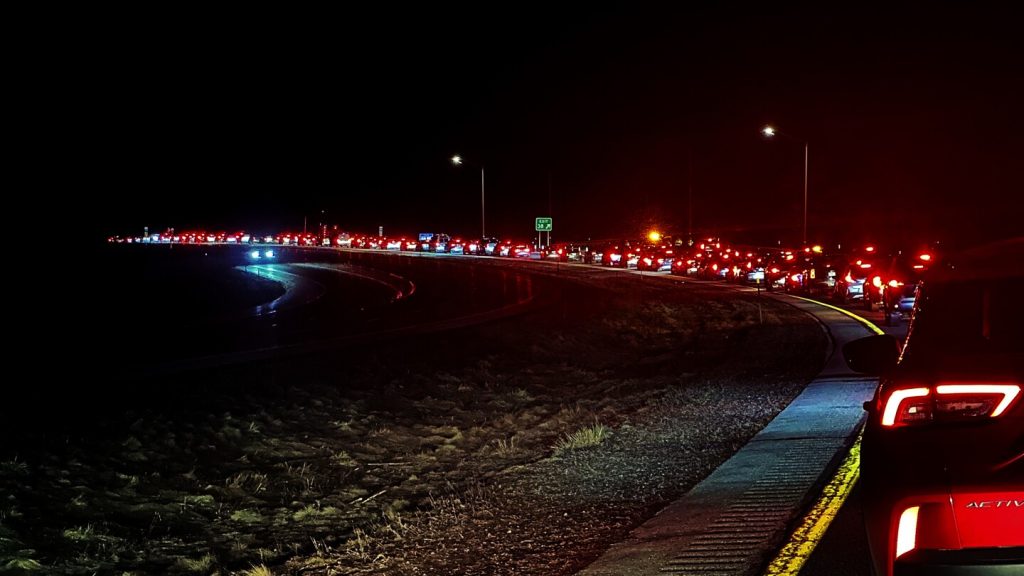Thousands of visitors in northern New England communities experienced heavy traffic on their way home after the total solar eclipse event on Monday. Travelers in New Hampshire, Maine, and other states faced long delays on interstates and secondary roads, with some stuck in bumper-to-bumper traffic for up to 12 hours. Despite the traffic congestion, the clear skies and mild weather in New England provided ideal viewing conditions for totality, attracting crowds to places like Lancaster, Stewartstown, and Colebrook in New Hampshire.
The heavy post-eclipse traffic led to standstills and challenges for travelers, with some resorting to pulling over on the side of the road for rest breaks or running out of gas. Those who attempted to navigate through back roads or stop for food encountered additional obstacles, including long wait times and limited services. However, many travelers, like Scott Lacourse and his wife, still found the eclipse viewing experience to be worth the challenges of the journey, describing it as “amazing” despite the extended travel times.
New Hampshire state officials had warned travelers about the potential slow return back home and encouraged people to stay in the area longer to avoid the heavy traffic. In states like Maine, traffic on rural roads like Route 4 remained heavy and slow-moving for hours after the eclipse, requiring patience and careful navigation for drivers. Communities like Paducah, Kentucky, also experienced post-eclipse traffic delays as thousands of people crossed state lines following the event, creating congestion on interstates in states like Indiana, New York, and Pennsylvania.
Despite the traffic challenges, many travelers expressed appreciation for the opportunity to witness the solar eclipse in northern New England, with some describing the experience as memorable and breathtaking. The event brought together visitors from different states and prompted discussions about alternative routes and accommodations to mitigate traffic congestion. State officials urged travelers to remain patient and flexible during their journey and advised them to plan accordingly for future events to avoid similar traffic issues.
Overall, the total solar eclipse event in northern New England drew thousands of visitors to the region, providing a unique opportunity for people to witness a rare celestial occurrence. While the heavy post-eclipse traffic led to lengthy delays for many travelers, the clear skies and favorable weather conditions enhanced the viewing experience for those in attendance. Moving forward, state officials and travelers alike can learn from this event to better prepare for future gatherings and ensure smoother travel experiences for all participants.















